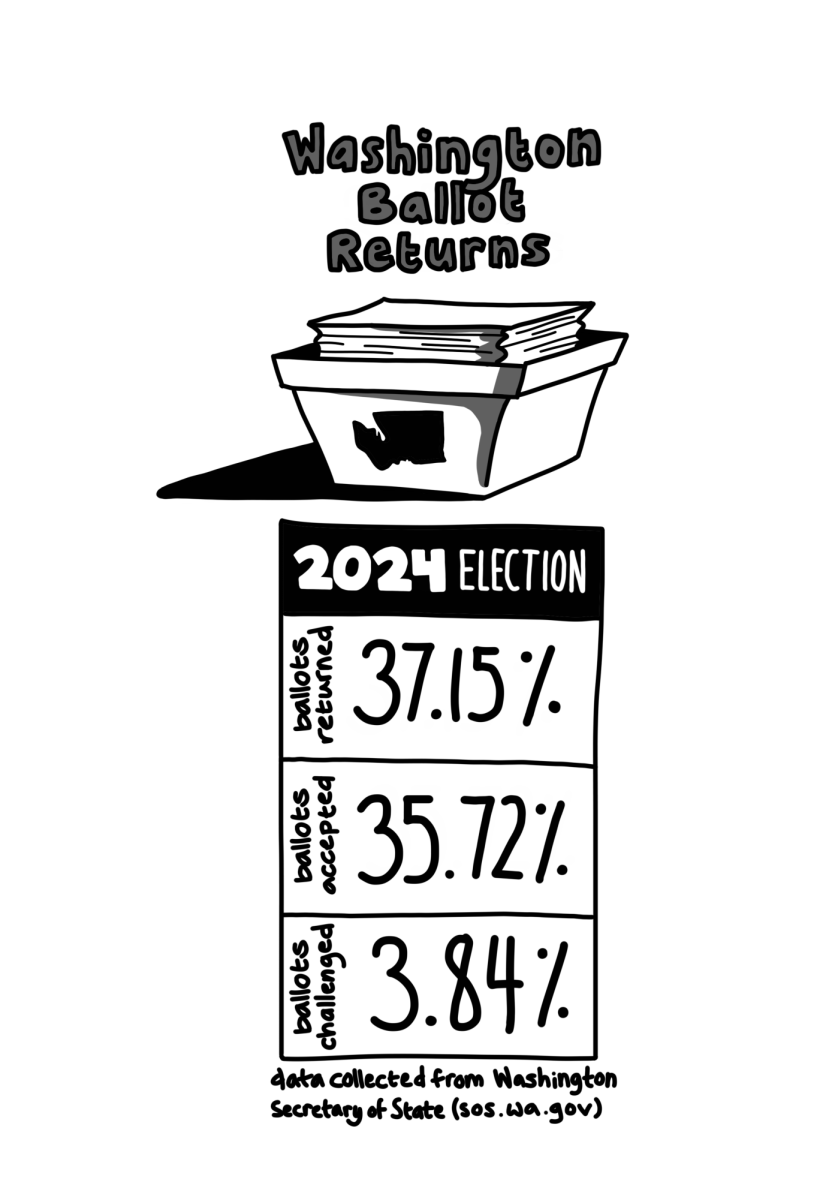
The word slavery evokes images of distant times and distant places. It’s something that happened more than a century ago, something which exists in a few isolated, desolate and poverty-stricken places on earth. But that popular image of slavery is dead wrong, according to senior Allison Gill.
“We think of [slavery] as a purely international issue, not something that happens here,” she said. “A lot of the fight right now is getting people to admit that it’s a problem.”
Gill is working with organizations in Walla Walla to start a group to combat human trafficking. She hopes to engage in activism on a local, national and international level. Locally, she hopes to train students to be citizen investigators who uncover evidence of potential trafficking.
“Education and awareness are a big component,” she said.
Unlike in many other countries where trafficking is an issue, the United States has a law enforcement presence which is generally responsive and willing to prosecute trafficking cases. However, citizen activists play a vital role in uncovering cases.
“Sometimes you can’t mobilize local law enforcement to do anything unless you present them with concrete proof,” said Gill.
Other organizations in Walla Walla are also trying to raise awareness about the issue of human trafficking. The Walla Walla University chapter of Amnesty International recently partnered with other organizations to hold an ongoing anti-trafficking fundraiser. Events included music and poetry presentations, a film about trafficking and panel discussions. Proceeds went to the Walla Walla HelpLine Women’s Shelter, which offers support to homeless women.
“The most vulnerable populations [for trafficking] in Walla Walla, and elsewhere, are homeless women and children,” said Greg Dodds, the faculty advisor for WWU’s Amnesty International chapter. He believes that the HelpLine Shelter is important because it serves a unique population.
“There was no shelter for single homeless women before the HelpLine Shelter,” he said. “All communities need to take responsibility to protect their most vulnerable populations. We need to be proactive.”
In addition to educating students about local trafficking issues, Gill wants to raise awareness about purchasing products made with slave labor. She said that chocolate is particularly problematic, because the vast majority of it is made from cocoa beans imported from plantations with little to no oversight on the part of the chocolate companies. These plantations often use slave labor to produce the beans, which are made into chocolate and sold to unsuspecting consumers.
“Those companies aren’t going to care unless consumers care,” said Gill.
Amy Dodds, a music assistant involved in the Amnesty events, finds the link between consumption and slavery striking.
“So many products that seem to be associated with slave labor over the centuries are luxury items: things like coffee, chocolate and sugar,” she said. “The things that are addictive and make us greedy are where we have looked the other way if others are suffering.”
Gill also hopes to help raise funds for organizations working to fight trafficking. She has followed the work of Not For Sale, a nonprofit which has anti-trafficking projects in Thailand, Nepal, Uganda, Peru and Cambodia. Recently, the group has set up checkpoints on the Nepal-India border, where formerly trafficked individuals help police identify and free women being brought across the border to work as sex slaves in India.
To increase campus awareness of trafficking issues, Gill plans to hold a screening of “At the End of Slavery,” a documentary which describes the many instances of slavery taking place around the globe. She hopes to inspire Whitman students to act to end trafficking.
“I feel like I should have taken concrete action about this issue earlier on in my time at Whitman,” she said. “I came here thinking it was a really socially aware campus, but with the exception of environmental activism, there’s a lack of people doing something about the issues they say they care about. I don’t exclude myself from that statement.”
By making students aware that trafficking occurs all over the world, Gill hopes to change this.
“The people who get involved and become hardcore activists [against trafficking]: it’s because it’s right in front of their nose and they just saw it,” she said.













